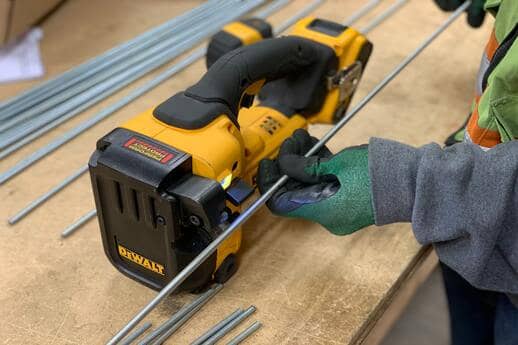A trade school education can be a good alternative to a traditional two-year or four-year college. However, these trade school training programs are not suitable for everyone. If you’re looking at the trade school route to a great career, it’s important to choose your school wisely. You should also be asking the right questions. Trade schools can provide great training and opportunity for a lucrative career, but not all trade school training is created equal.
Any student considering a trade school education should do plenty of homework and ask plenty of questions. Listed below are some of the most important questions to ask the administrators and teachers at your local trade school.
What kind of salary can I expect?
Before you spend money on a trade school, you want to know that your money will be invested wisely. The ultimate goal of a trade school education is to prepare you for a good career. One of the most important things you need to know is what kind of salary you can expect when you graduate and land a job.
It’s important to not rely solely on the salary figures provided by the school itself. Some trade schools have been known to inflate salary numbers to make their education appear more valuable than it truly is. Checking independent sources like the Bureau of Labor Statistics is one of the best ways to determine salary level. You should also check local job postings. Some job postings will list current salary ranges. Checking these sources will give you salary expectations for when you successfully complete the program.
What kind of job will I be prepared for once I graduate?
Some trade schools prepare graduates to enter the workplace at a relatively high level but graduates from other schools might be prepared for only an entry-level career. It’s important to do some independent research and determine what kind of job you will be qualified for, based on the skills the school teaches its students.
What are the future prospects for this field?
You obviously do not want to train for a career that is on the decline. Training for a career in typewriter repair or buggy whip manufacture is probably not the smartest move. That’s why it’s important to research the future prospects for the career field you plan to enter.
Government websites like the Bureau of Labor Statistics are good places to start. The government keeps statistics and projections regarding future prospects for a wide range of careers. Business magazines and newspapers can also be good sources of career information.
How do local employers view this school and its training?
When you graduate from trade school, you will place that education at the top of your resume. How local employers view the school can mean the difference between landing an interview and having your resume discarded.
It’s a good idea to check with the HR departments at companies in your area to assess the reputation of the trade school you’re considering. Chances are these hiring managers have interviewed, and perhaps hired, former graduates. They will be able to give you honest feedback about the quality of the education those schools provide.

What is your graduation rate?
A low graduation rate is a huge red flag when evaluating a trade school. If only a small number of students graduate, that could mean that the quality of instruction is poor. It could also mean that the courses offered are not applicable to the real world. Failing to graduate could leave you with no education and lots of debt, so it’s important to check the graduation rate of any trade school you’re considering.
What kind of placement assistance do you offer?
A good trade school will be anxious to help their graduates get a great job. It’s important to ask what kind of placement assistance the school offers, and how they help their graduates find the positions that will launch their careers.
How many of your graduates are employed in their chosen fields?
Many trade schools brag about the percentage of graduates who are employed a year after graduation, but it’s important to dive beneath the surface. What you really want to know is how many graduates are employed in the fields the school teaches. After all, you do not want to spend a fortune on a trade school and end up with an entry-level job you could have gotten without that expensive education.
Key Takeaway
Just like any other type of educational institution, you should ask the important questions prior to enrolling in a trade school program. You need to make sure that you’re making the right decision both financially and for your career. In addition to trade schools, there are other job training programs available that provide training for lucrative and growing careers.
References
*https://aimseducation.edu/blog/the-top-10-reasons-to-enroll-in-a-technical-school



